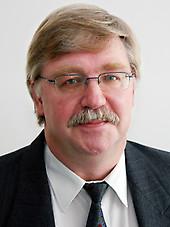Until Arévalo can be sworn in as the new president of the country on January 14, 2024, the coming months leading up to that constitutionally determined date will show what certain forces and power factors are are willing to use and risk. Are they still playing for ¨all or nothing¨ after the elections? With whom and what methods? Or are they betting on a de facto blockade of the new president after he is sworn in, with all the negative consequences that this entails for the country? What path will the mixture of personal interests (a fourth candidacy by Torres is unlikely to be realistic) and structural interests yield? A first indication of this possible strategy is provided by the debate over the re-election of the Supreme Court justices (who have been in office for about four years beyond their terms) by the coalition majority that still exists. This would give the future president a weighty ¨counter-organ¨ to take with him even before he takes office. But even independently of this, the question of ¨gobernabilidad¨, the ¨governability¨ of the country, is posed. This can be determined by several factors:
- SEMILLA is a small party that was probably most surprised by its success itself. Arévalo will probably find it difficult or impossible to fill all important positions with his own people and confidants. He therefore has to rely on recruitments that carry a high risk.
- SEMILLA has only 23 deputies out of a total of 160. For the implementation of legislative projects in Parliament, Arévalo therefore needs support primarily from the parties that are among his declared opponents.
- If SEMILLA were to be annulled as a party, this would not affect Arévalo's election, and the elected deputies could also retain their mandates. However, they would then be ¨independent deputies¨ and would no longer have caucus status, which would of course massively curtail their ability to work and exert influence in Congress.
- The question of how the so-called ¨factual powers¨, i.e. organized interest groups up to and including the OC or narco-influence, will behave toward the reforms announced by Arévalo is completely open.
The governability context, within which the president is only one of several factors, will ultimately determine the success of Arévalo's government. Arévalo has very diverse interests, hopes and expectations bundled together. A Herculean task awaits him and his government in view of the complex pressure of the problems. However, the hope for profound changes and improvements in the country and the accompanying expectations of the new government are of a dimension that cannot be fulfilled in four years, so disappointment would be inevitable even in a less problematic political and social context. The hope remains that this election will has awakened sufficient self-purifying forces capable of stabilizing, modernizing and strengthening the discredited and pressured political system of Guatemala, a country that found its way to democracy decades ago at great sacrifice. Perhaps these elections are Guatemala's last chance to prove itself as a democratic haven in a Central America where autocratic to dictatorial tendencies and systems have gained ground and corresponding temptations exist in many a country.
The full length publication is only available in german.



